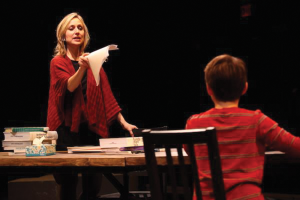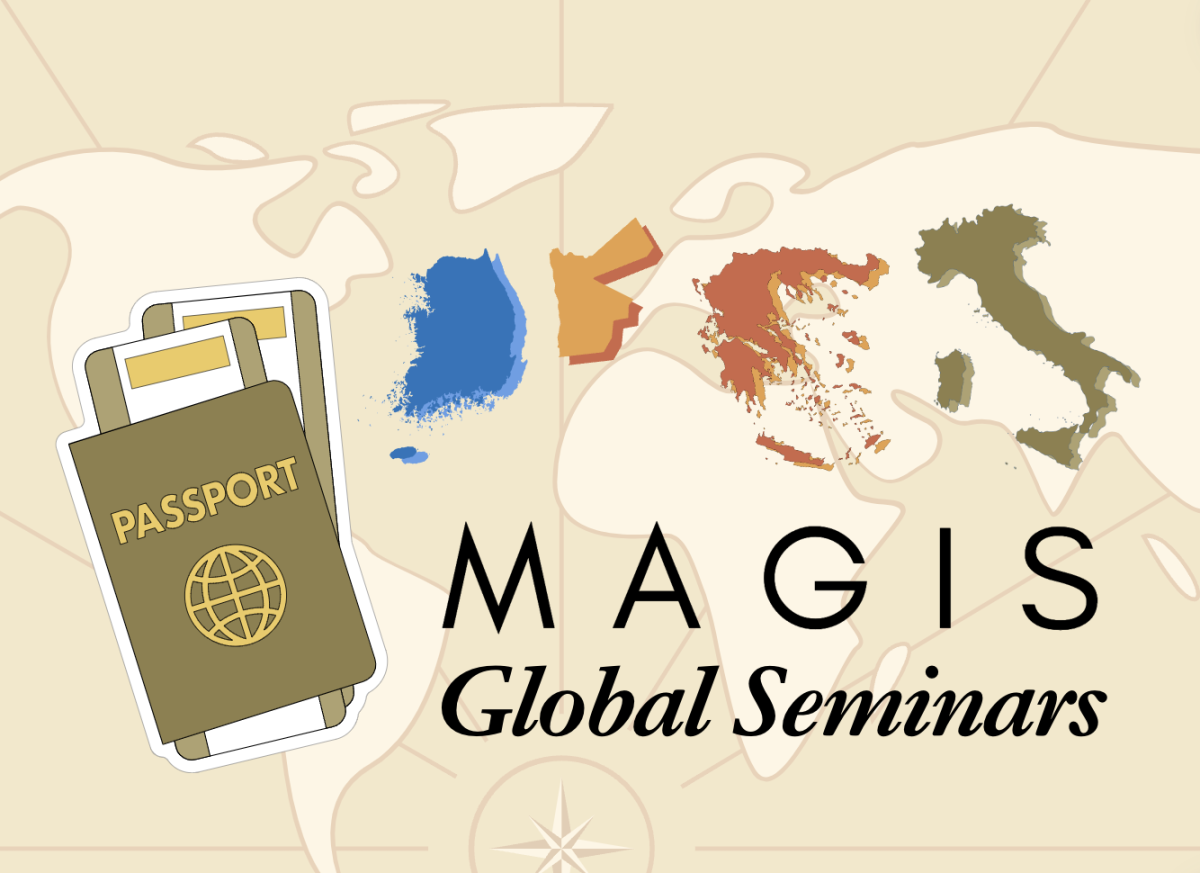
For centuries, the play has served as one of the most evocative forms of art, challenging writers and actors to connect with audiences and spark dialogue beyond the pages of scripts. In recent years, the writing and producing of plays have vastly transformed to match the cultural trends of American society today — the journey of the play has essentially altered its own course.
A similar journey has been taking place on Georgetown’s campus. Georgetown’s Laboratory for Global Politics and Performance — better known as “The Lab” — has been working to help develop and produce plays that tell diverse and socially relevant stories.
Founded in 2012 by professor Derek Goldman of the Department for Performing Arts and Professor Cynthia Schneider of the School of Foreign Service, The Lab is committed to providing development opportunities to underrepresented voices in Washington, D.C., to connecting them with policymakers and to providing them with a platform for theater that is responsive to critical and current issues.
Jojo Ruf, managing director of The Lab, commented on recent developments in the writing and producing of plays.
“Traditionally, new play development — in the U.S. at least — is an arduous and lengthy process. Most new plays take several years to develop, and to go from conception to production, sometimes even longer,” Ruf said. “One of the things that The Lab is trying really hard to do, particularly now where things politically and environmentally are changing daily if not by the hour, [is] finding ways where we can be more reactive to what is going on in the world.”
Unlike many professional theaters, which can plan seasons as early as five years in advance, The Lab typically does not announce a season at all. As a result, it is able to be more responsive to things that happen in the world, whether that be through one-day events, conventions or readings.
Recently, for example, The Lab produced a one-night-only event: “Dreams Deferred: Crossing Continents and Cultures with ‘A Raisin in the Sun.’” The show was performed March 27, World Theatre Day, and featured productions of Lorraine Hansberry’s groundbreaking 1959 play “A Raisin in the Sun” from the United States, South Africa and Sweden.
“I think the significance of the mission [of the Lab] and of our efforts has increased exponentially, way beyond what we expected when The Lab was founded,” Goldman said. “The truth is we could never have predicted the degree … so many folks are now, I think, seeing how work at the intersection of performance and politics — how resonant it is and how essential — the kind of work of narratives and stories to humanize critical issues that are happening in our world — whether it’s the refugee crisis and migration issues, whether it’s Islamophobia and racism, whether it’s climate justice issues — that narrative and story and the humanities and performance are essential ways to bring people together with empathy and critical thinking around very challenging, often seemingly intractable issues.”
Some of the most recognizable projects presented by The Lab were workshop readings of “Noura” by Heather Raffo and “Nine Parts of Desire,” a reimagining of Henrik Ibsen’s 1879 play “A Doll’s House” using the story of a refugee family. At Queens College in New York City, Raffo taught a class to Arab-American women where she and her students read “A Doll’s House” and interpreted it through their own life experiences. That class was the root of what became “Noura,” which Raffo began writing with funding from a grant from The Lab while conducting research at Georgetown University. The play was eventually presented in December 2015 as a workshop reading directed by professor Goldman.
“The Lab is so powerful and unique because it’s at Georgetown, meaning we have access to all the different minds that come through,” Raffo said. “It’s kind of the perfect fire, for me, to test a new piece. There’s really no other place that I’ve had access to in the country that has all the different aspects that I need the way The Lab has.”
Through Georgetown’s network, Raffo was able to involve members of the Iraqi-American community, members of the Center for Contemporary Arab Studies faculty and the expertise of the libraries on Georgetown’s campus. As a collaboration between the SFS and the Department of Performing Arts, The Lab is able to provide playwrights with what Goldman refers to as “an intense research environment.”
Georgetown has a wealth of relevant literature and academic sources in its libraries, but it also has faculty with expertise in politics, international relations and related fields who can provide playwrights with their viewpoints and specialized knowledge.
“It can absolutely be to cultivate new work that perhaps has a chance to be more deeply researched, explored, developed than most professional theaters have the resources,” Goldman said.
Georgetown’s students are also a valuable resource to playwrights.
“Our students are so smart and sophisticated in how they work, whether they’re SFS students or students from the College,” Goldman said.
In the past, students have served as researchers on Lab projects as well as actors in the readings and events that result, and some have continued to collaborate with artists in the years after their residency.
Since its reading at The Lab, Raffo has continued to develop “Noura” through several readings in New York and across the United States, including one in Colorado just ahead of the November election. Raffo continued work on the play with a residency at the Arab American National Museum in Dearborn, Mich., where people and refugees from the Middle East workshopped the play. It was then staged at the McCarter Theatre at Princeton University.
“The great thing about doing it at the McCarter was we had the power of a great regional theater behind us so we could implement technical elements. We got to block it, to lean into a set design, light design, sound design,” Raffo said.
The opportunity for technical integration helped Raffo further develop “Noura” and present the play to the theater community, leading to its upcoming world premiere at the Shakespeare Theatre Company in the District, scheduled for February 2018.
“Noura” was able to contribute to the public conversation surrounding the refugee crisis and the Iraqi-American experience years ahead of a full production.
“To not only have it and to try a work of art in a time where it’s actually currently relevant but to do that in D.C. — where so much is currently relevant — is enormous,” Raffo said.
Raffo described The Lab as “hugely helpful to artist’s journeys” in its work helping to produce and present plays to the public.
As “Noura” continues its journey as a play, The Lab remains committed to helping develop diverse works that are responsive to current events and the political climate. Its latest project is “272,” a play commissioned by the university from acclaimed African-American playwright Tearrance Chisholm, who is known for the play “Hooded, or Being Black for Dummies,” about the 272 slaves whose sale in 1838 benefited Georgetown University and Maryland Jesuits’ descendants.
Like Raffo, Chisholm has had access to the resources of Georgetown University, travelling to New Orleans to interview the ancestors of Georgetown slaves.
“He talks a lot about just wanting to come to campus and feel what campus was like, and we provided him with that opportunity too,” Ruf said.
Rarely do the projects developed in The Lab follow the same process or format, or have a prescribed course of action.
“Every project is different,” Goldman said. “What The Lab is in a position to do is tailor those experiences to the needs of the artist and the project, so it’s not one-size-fits-all.”













